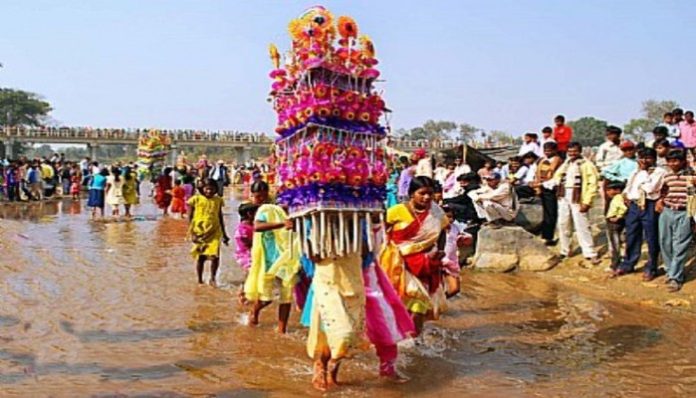Mayurbhanj district of Northern Odisha is the dreamy land of nature. It is the heartland of art, culture and dance. Many different fairs and festivals are celebrated here all across the seasons to make people happy. Makara is one such festival here. This festival is observed by offering makara rice to the sun and giving a dip in the river because makara is the celebration where the sun is worshipped. According to the mythological theory, on this day the sun moves to the house of Saturn. Saturn is the master of Capricorn, and the festival is named Makara Sankranti, as per the researchers and scholars.
During the celebration of this festival in mayurbhanj, another attraction is the Tusu festival. This festival is not only celebrated in mayurbhanj, but in other adjacent places in West Bengal also. But who is this ‘Tusu ‘ and what is his existence? It is difficult to find any historical facts on this, but folk stories and songs depict that ‘Tusumani’ was an ideal girl.
Its content is based on the current folktales, writing and oral history. In the 13th century, the queen of the Mewar kingdom Padmini was extremely beautiful. The Sultan of that time Allauddin Khilzi, became anxious to get her by seeing her beauty through a mirror. As a manifestation of that effort, he attacked the Mewar time and again and finally besieged the Chittore fort. Queen Padmini exalted herself in the fire by knowing about this. Allaudin Khilji wanted to get Trusmini the soul daughter of Queen Padmini. In the end, Trusmini’s father is left with no choice but to leave the Mewar and hide his daughter from Khilji in the house of one of his loyal people. Then the spies of Khilji came to know about it and blocked that place. When Trusmini came to know about this she escaped from the place to safeguard her Sativa (Purity). She could not be successful in escaping but got caught by the spies. Later she sacrificed her life by jumping into the drive to protect herself from Khilji and his army. That very day was Makar Sankranti. To commemorate the pure soul of that girl, the unmarried girls dissolute Tusu in the river on MakarSankrantii. The story of Tusu is based on a legend during Mughal rule in the Indian history. This festival, Tusu is celebrated as a monument of that incident. Many researchers point out that the word Tusu has been derived from the name Trusmini. Though the story is different from village to village, the primary facts remain the same. Tusu is no Goddess from mythology. She is a human being, a woman who is worshipped because of her purity, divinity and holiness.
The speciality of the Tusu celebration is so effective and important in the societal, spiritual and moral perspectives, as in the perspective of folk culture. So except for the celebration and reverence for Tusu Puja, the Tusu songs are also remarkable.
Girls from the community called Mukudi assemble to invite the Tusu goddess by placing an idol of the goddess on a cot. The girls offer some delicacies, like
laddu made from rice powder, some rice, grass leaves, and rice popcorn in an earthen bowl to the goddess before either three or five days of Makar Sankranti. This offering is called Tusu Utha. The day after Makar Sankranti, in the early morning the girls go to the river to immerse in the Tusu idol joyfully.
With this march of immersing the idols in the river water, many Tusu idols participate from different villages. The Village is echoed by different flok musical instruments, dance and songs. Everyone gathers near the rivers and ponds to immerse the Tusu goddess idol. Each group sings songs competitively praising their respective idols. Thereafter they go to the middle of the water bodies placing their idols either in boats or elephants to immerse in deep water.
Every resident of the Mayurbhanj district celebrates the Makara festival extraordinarily. This festival is symbolic of brotherhood and helps people forget their sorrows and scandals by filling joy and happiness.




















